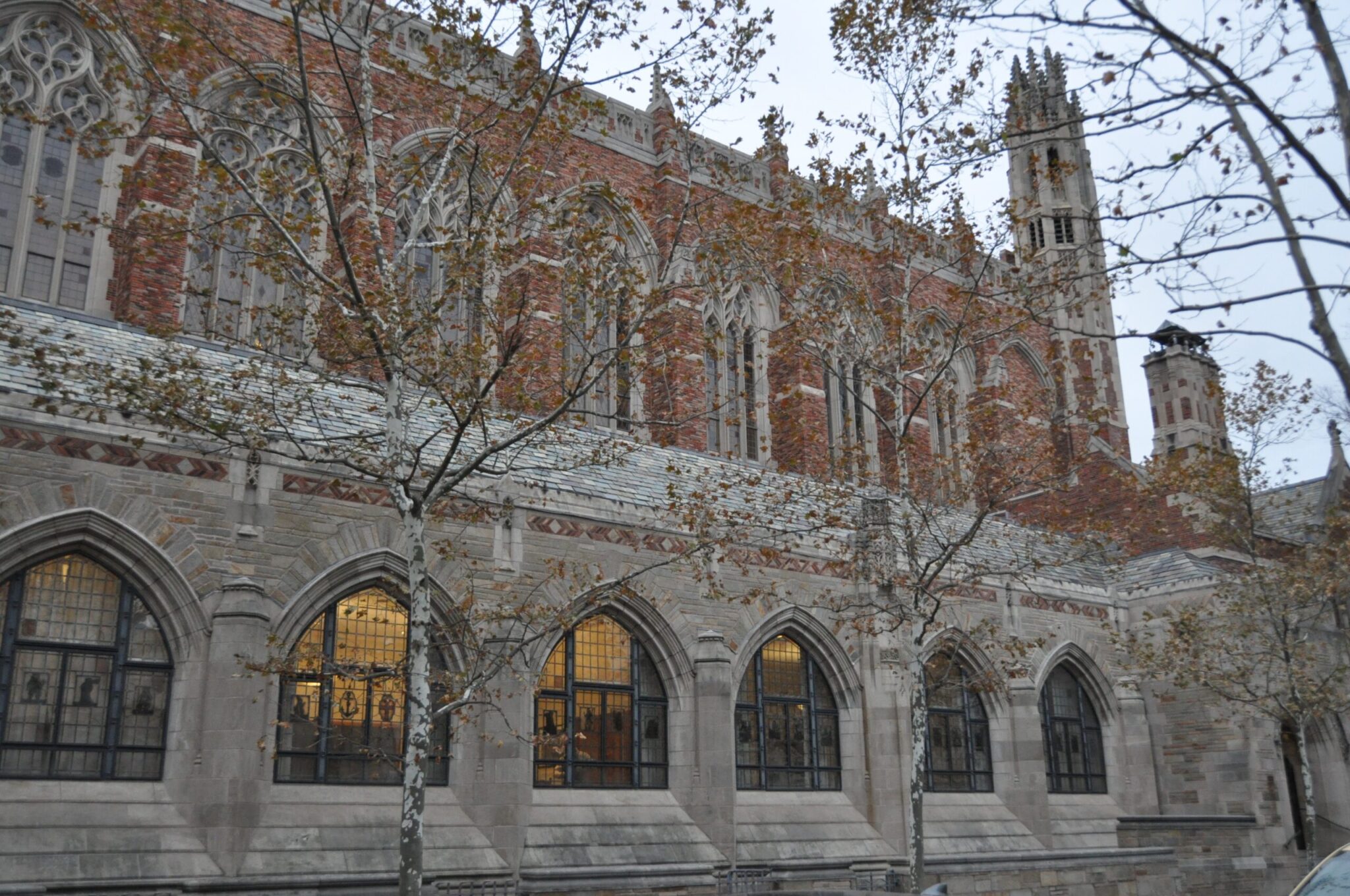Law School announces four new optional essay prompts for 2023-24 law school admissions cycle
Announced after the Supreme Court’s decision to axe affirmative action, Yale Law School applicants now have the chance to write an optional essay centered around the themes of community engagement, leadership, determination or open-mindedness.

Madelyn Kumar, Senior Photographer
Applicants to Yale Law School must provide an academic transcript, an LSAT or GRE score, letters of recommendation and a personal statement.
New this cycle, applicants can now also submit an additional optional essay, which the Law School announced just weeks after the Supreme Court’s decision to strike down race-conscious admissions policies.
The new optional component, added in August, allows applicants to write an essay on one of four topics. The topics center around the themes of community engagement, leadership, determination and open-mindedness. According to the Law School’s website, these essays should focus on the “personal, professional and/or academic experiences” of an applicant rather than their specific reasons for wanting to attend Yale Law School.
For Jake McDonald LAW ’25, the new prompts are “a welcome change” because they expand the definition of diversity to encompass voices from a wider variety of backgrounds, including ideological, socioeconomic and religious perspectives, allowing applicants to talk about those subjects more freely.
Yash Chauhan ’26 told the News he believes the prompts allow applicants a chance to tell the admissions committee who they are beyond their grades and test scores.
“These optional essay prompts — while markedly different from diversity statements — allow candidates the chance to showcase their drive, passion and aspirations,” Chauhan wrote to the News.
In previous application cycles, applicants had the opportunity to include an optional diversity statement in their application. This essay allowed applicants to address any core aspect of their identity that, in their view, would have contributed to the Law School community and might not have been sufficiently addressed in their personal statement.
According to McDonald, the diversity statement had a fundamental flaw: an ambiguous framing of diversity, which he felt left many applicants with no idea on whether to write the optional statement.
However, Sage Mason LAW ’24 told the News that the diversity statement allowed his Law School application to present a more complete picture of his identity and experiences.
“My application process to YLS was atypical because I transferred [to Yale] after my first year of law school at Washington University in St. Louis,” Mason said. “I included a diversity statement as part of my application, and it contributed greatly to providing a more complete expression of who I am and what I thought I could offer a place like YLS.”
The diversity statement is no longer listed as an application component on the Law School’s website for the 2023-2024 law school admissions cycle.
McDonald told the News that he believes the removal of the diversity statement and the addition of the new prompts may have to do with the Supreme Court’s June decision that struck down race-conscious admissions.
“[I believe] the explicit diversity statement from years past — including the year I applied — is gone because the school was worried about its legal viability in light of the Supreme Court’s recent ruling in SFFA v. Harvard,” McDonald wrote to the News.
Debra Kroszner, the spokesperson for the Law School, declined to comment on whether recent application changes were motivated by the Court’s ruling against affirmative action.
In the Court’s majority opinion, Chief Justice John Roberts said that schools can only constitutionally consider the race of an applicant if it is “concretely tied to a quality of character or unique ability that the particular applicant can contribute to the university.”
In other words, applicants can still discuss their race or ethnicity in admissions essays, but admissions officers can only consider any mentions of race if they are directly relevant to an applicant’s unique accomplishments. It remains unclear, however, what cases would be deemed as directly relevant, leaving specifics of what the Court’s ruling should look like in practice at the University — and at other higher education institutions — unknown.
Though the Law School has not addressed whether the updated essay prompts are related to the Supreme Court’s June decision, its website claims that it continues to uphold its commitment to a holistic review process.
“Applicants may choose to submit an essay in response to one of the four questions … each related to a value that is central to the Law School community,” the website reads. “This is an opportunity to provide readers with relevant information that may not be found elsewhere in your application.”
Kroszner declined to comment on this story overall; she referred applicants to the Law School’s website for information regarding the school’s admissions process.
Yale Law School was founded in 1824.
Correction, 10/11: A previous version of this article misquoted a source. The article has been fixed accordingly.







